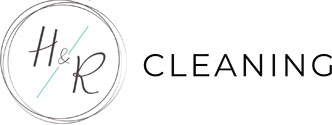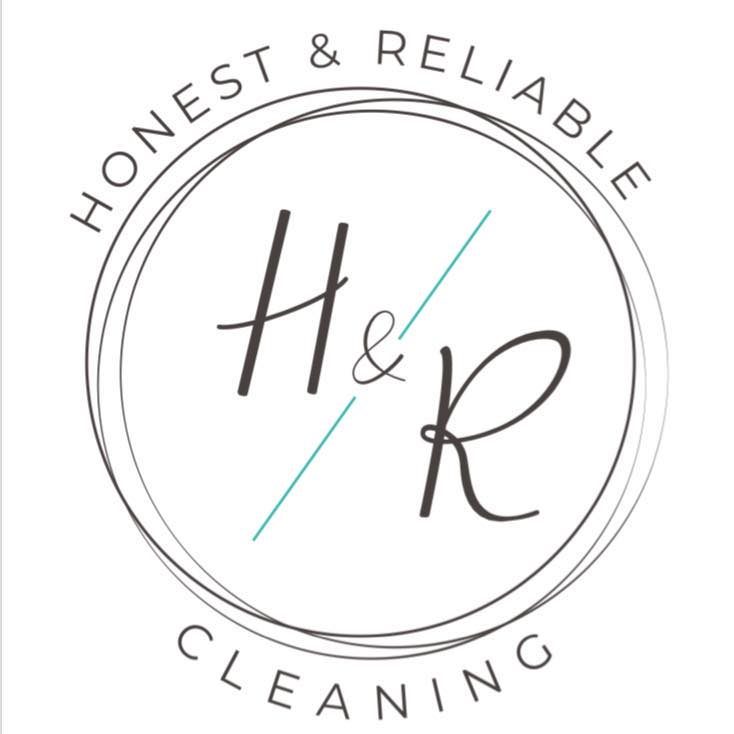Cleaning Product Guide Part 1
When it comes to cleaning products, it’s important to know which products you should never mix. Certain products, when mixed, can create dangerous fumes or irritating solutions that can cause serious harm. These issues include skin irritation, respiratory issues, long-term health problems, and more. We want to keep your home a safe, clean, and happy place to live so we’ve put together this Cleaning Product Guide: What Products Not to Mix.
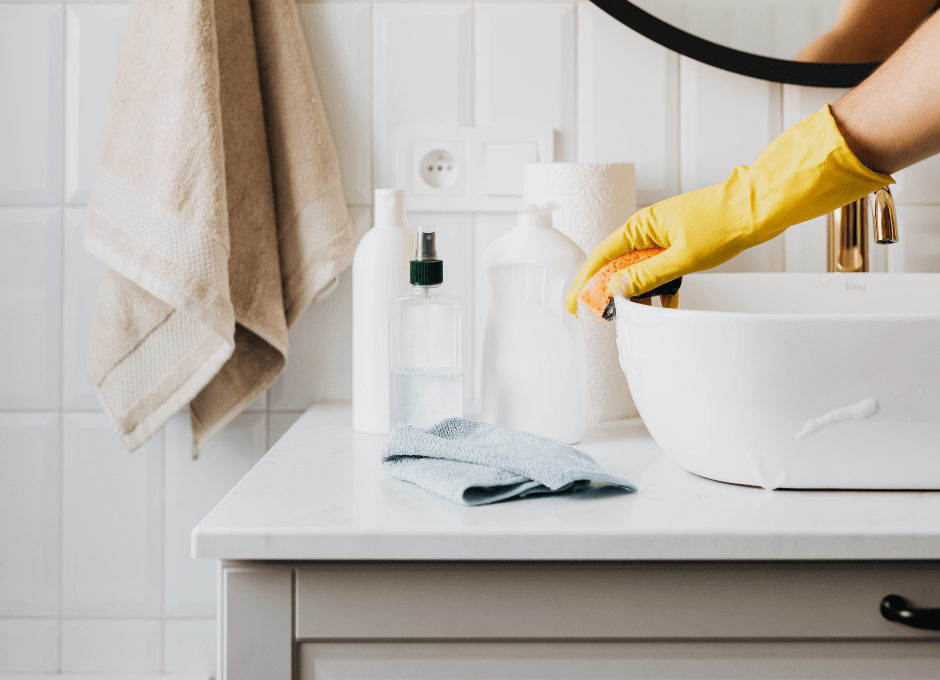
Cleaning Products That Should Never Be Mixed
Bleach & Ammonia
When you mix bleach and ammonia, it creates dangerous gasses called chloramines. These gasses can cause a number of negative health reactions including coughing, nausea, shortness of breath, watery eyes, chest pain, irritation to throat and eyes, wheezing, and even pneumonia and fluid in the lungs, according to the Washington State Department of Health. This mix could look like using a Clorox Toilet Bowl Cleaner while cleaning the floor with an ammonia-based cleaner. While it may seem insignificant and a natural process in cleaning your home, mixing these cleaners should be avoided. We recommend keeping either bleach or ammonia based cleaners, but definitely not both.
Bleach & Vinegar
When bleach is mixed with other acids, this creates chlorine gas which is extremely harmful when inhaled. The severity of symptoms you can experience depends on the level of concentration and how long you’ve inhaled the gas, according to healthline. Symptoms can include irritation to mouth and nose, coughing, shortness of breath, chest pain, and fluid buildup in the lungs. At high concentrations and prolonged inhalation, chlorine gas can be lethal.
Hydrogen Peroxide & Vinegar
Two common household products, hydrogen peroxide and vinegar have powerful and resourceful properties for keeping a clean home. However, when combined they can form peracetic acid which can be harmful. This gas can cause irritation to your eyes, throat, lungs, and skin.
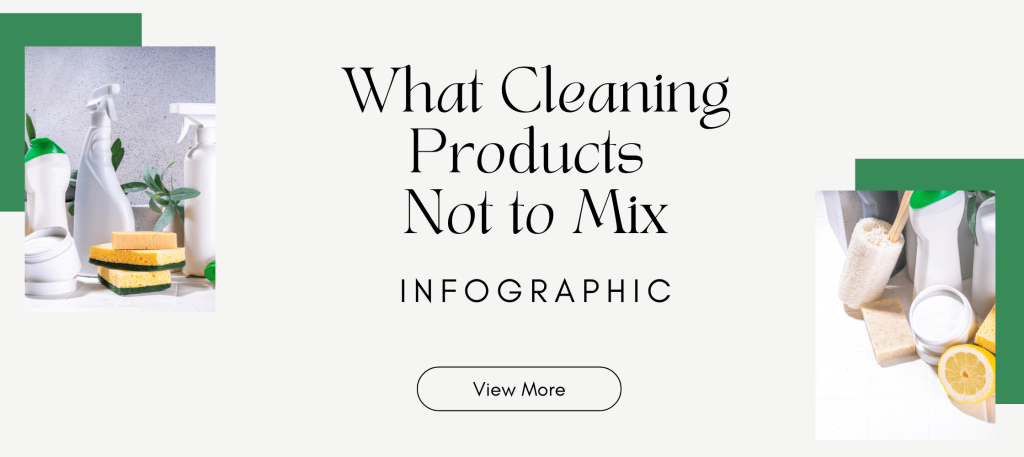
Alternative Cleaners
Here are several alternative options for cleaning products that are, in many cases, safer to use than traditional chemical cleaning products:
Baking Soda
Effective at cleaning and deodorizing surfaces including oven, toilet, sink, and bathtub. Baking soda can also be used to absorb unpleasant odors, such as those from the fridge or carpet.
Castile Soap
A vegetable oil-based soap which can be used as an all-purpose cleaner. Castile soap works well on floors, walls, and countertops, as well as on dishes and laundry.
Vinegar
A versatile cleaning agent that can be used to clean and disinfect many surfaces including windows, countertops, and floors. It can also be used in the washing machine as a fabric softener or to remove buildup on showerheads.
Lemon juice
An acidic cleaning agent that can be used to cut grease and remove stains and hard water buildup. It can also be combined with baking soda to form a paste that can be used to scrub surfaces like tubs, tiles, and grout.
Essential Oils
These can be mixed with water and vinegar or baking soda to create a natural, pleasant-smelling cleaning solution. Tea tree oil is especially effective at killing bacteria, while lavender is known for its calming scent and ability to deodorize.
It’s important to note that while these natural options have many benefits, they may not always be as effective or convenient as traditional cleaning products, depending on the cleaning task at hand. But overall, making the switch to these alternative options is a great way to reduce exposure to harsh chemicals and create a safer, healthier living environment.
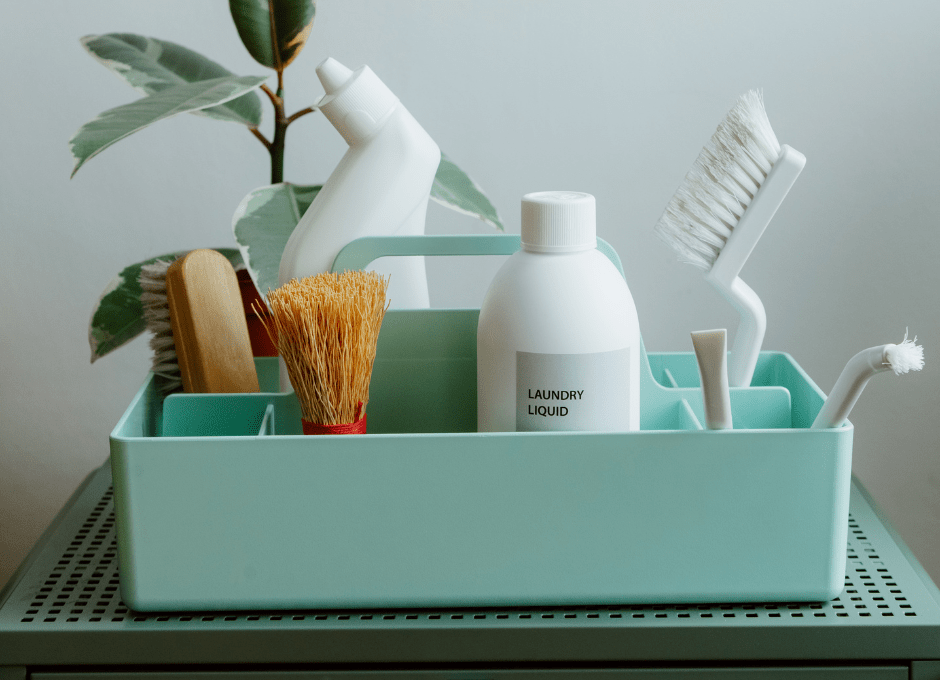
Safe Practices & Tips
We’ve included some safe practices and tips for handling and using cleaning products below.
Read Labels and Follow Instructions
Whenever using household cleaning products, it’s important to read product labels carefully to understand proper usage and safety precautions. Always follow the manufacturer’s instructions regarding dilution ratios, ventilation requirements, and recommended surfaces for use.
Ensure Proper Ventilation
Always ensure proper ventilation when using cleaning products, especially those with strong odors or fumes. Open windows or turn on exhaust fans to allow fresh air to circulate and prevent inhaling potentially harmful chemicals.
Use Protective Gear
Wear appropriate protective gear such as gloves, masks, and goggles when handling cleaning products to prevent skin irritation, respiratory issues, or eye exposure. Consider using natural rubber gloves rather than latex gloves to minimize the risk of allergic reactions.
Keep Products Separate
Store cleaning products in their original containers and keep them separate from food items or personal care products. Avoid transferring products to unmarked containers to prevent accidental misuse or confusion.
Avoid Mixing Chemicals
Never mix different cleaning products together, as chemical reactions can occur and produce toxic fumes or substances. Be especially cautious when combining products containing bleach, ammonia, vinegar, or hydrogen peroxide.
Dispose of Products Properly
Follow local guidelines for the proper disposal of cleaning products, especially hazardous or chemical-based ones. Do not pour cleaning products down drains or toilets unless explicitly directed to do so.
Store Products Safely
Keep cleaning products out of reach of children and pets, ideally in locked cabinets or high shelves. Store products in a cool, dry place away from direct sunlight or heat sources to maintain their effectiveness and prolong their shelf life.
Clean Up Spills Promptly
In case of accidental spills or leaks, clean them up immediately using appropriate cleaning methods and protective gear. Rinse contaminated surfaces thoroughly and dispose of any contaminated materials properly.
By following these safe practices and tips, you can minimize the risks associated with handling and using cleaning products, ensuring a safe and healthy environment for yourself and your household.
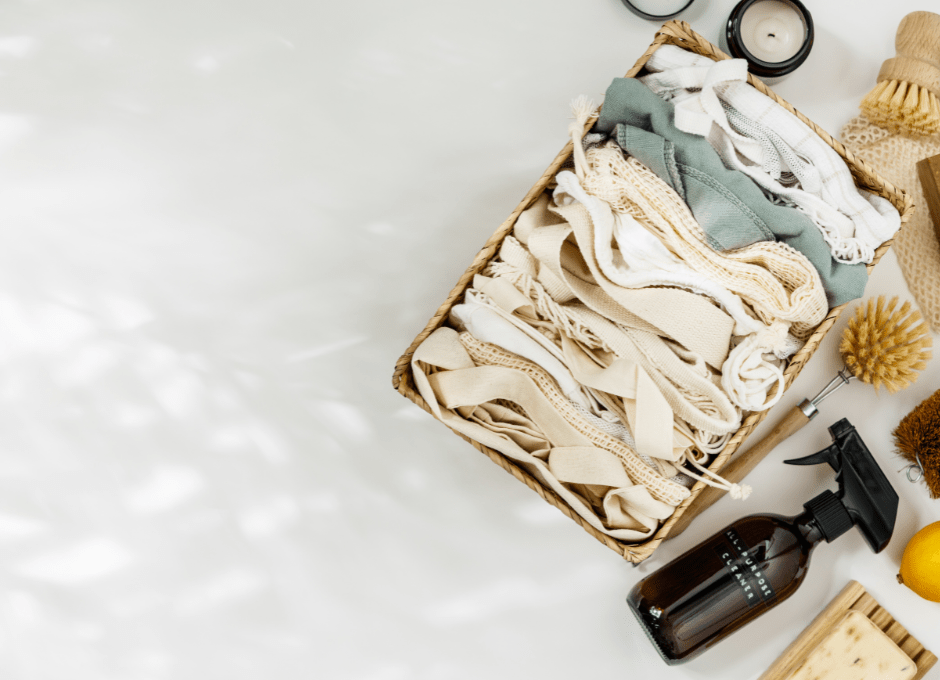
A Healthy Home
When it comes to cleaning your home, choosing and using the right cleaners makes all the difference. Make sure to not mix the cleaning products mentioned above and follow the safe practices and tips. This will help keep your home a safe space as you clean.
At H&R Cleaning, we use commercial cleaning products that are effective at cleaning and disinfecting while limiting extra, unnecessary chemicals that can be harmful or overly scented. As we clean, we follow safety guidelines and best practices to ensure that your space is not only clean but your home is also safer. What you find is a clean, healthy, and fresh space that you can feel good about spending time in. Book today to schedule one of our trained cleaning technicians to your door.
